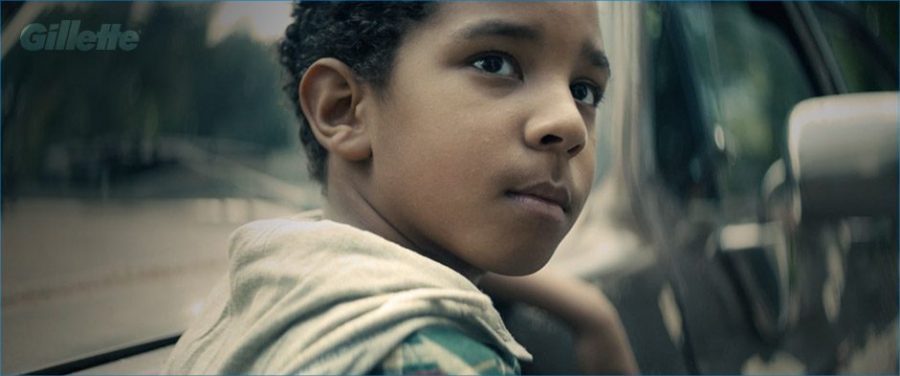Redefining masculinity: Gillette calls for societal reconsideration of values
Staff writer Steven Moffa writes that the Gillette ad is a step in the right direction for equality.
March 10, 2019
The world as we know it is vastly different than it was just a year or two ago. A shift in societal dialogue has made it acceptable, and some would say fashionable, for large corporations to comment on social issues. Nike supported Colin Kaepernick in a controversial ad campaign in 2018, and 84 Lumber’s infamous Super Bowl commercial in 2017 depicted a mother and child walking through the desert before coming upon a large border wall. Gillette is the newest company to join the list with its The Best Men Can Be ad campaign.
In the almost-2 minute video, Gillette entertains almost every criticism of masculinity, starting with bullying but covering a broad range of issues such as sexualization of women in popular culture, sexual harassment and gender roles. Such a video would surely appeal to everyone, you would think. After the whole Me Too movement, people should be somewhat understanding of the themes of the ad.
However, Gillette caught significant criticism for releasing the ad. Critics of the ad say that it paints all men in a negative light or that it’s emasculating, and many have pledged to boycott Gillette. It’s a (somewhat) understandable sentiment; as we progress as a society, gender roles are changing and will continue to change, and many are resistant to this change. As we question how, or if, gender shapes our lives, we should also begin to question the institutions of gender such as masculinity and femininity that define our interests and how we behave.
One phrase in particular is instrumental in this idea of gender roles: “Boys will be boys.” Repeated multiple times in the commercial, the phrase has come to represent the willingness of other men to defend each other simply by blaming wrongdoing on male nature. However, boys will only be boys if that’s how they are taught to act.
This is a point of emphasis for Gillette, as the narrator ends with “The boys watching today will be the men of tomorrow.” Those who disapproved of the commercial likely believe sexism died when women entered the workforce or that men are being unfairly accused of sexual misconduct. However, women are only now catching up to men in the workplace.
The American Association of University Women, a non-profit organization dedicated to educating and empowering women, found that 20 year-old women make 90 cents for every dollar their male counterpart makes. Also, according to a study done by Stop Street Harassment, 81 percent of women reported being a victim of sexual harassment in their lifetime, compared to only 43 percent of men. That’s four out of every five women interviewed – a number way higher than imaginable.
It can be hard as a guy to understand what many girls have to go through. They are taught both directly by peers and indirectly by pop culture that they are only valued for their looks, and that they have a limited range of employment options. Up until recently, little girls would mainly see princesses and housewives that looked like them, instead of CEOs. Boys, on the other hand, have been taught from an early age to be masculine and hide emotions. All of these concrete gender schemas have gotten us nowhere, but the message behind Gillette’s ad is one of hope.
Outside of the condemnation of current, ‘toxic’ masculinity, Gillette helps outline a plan for the future. “Men need to hold other men accountable,” actor Terry Crews says in the commercial. It’s true. It’s up to the fathers and male role models of not just our country, but our world, to shape the next generation of young men. So instead of making more excuses or complaining how Gillette got it all wrong (and give them even more publicity, I might add), maybe introspection is necessary, because “boys will be boys” only as long as we let them.










